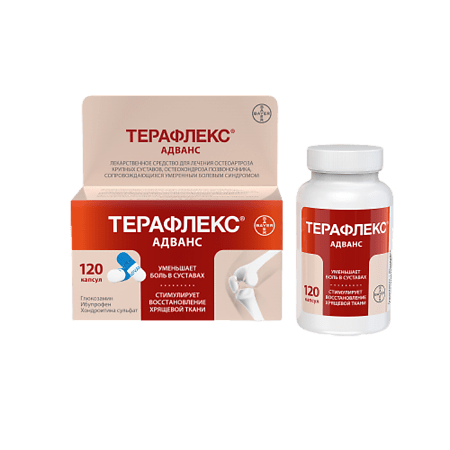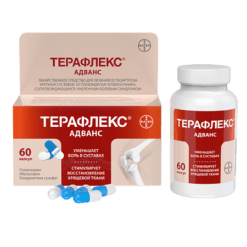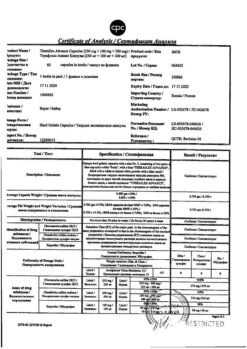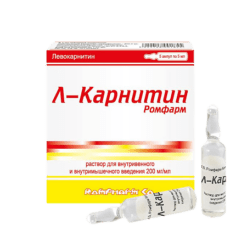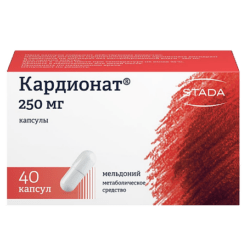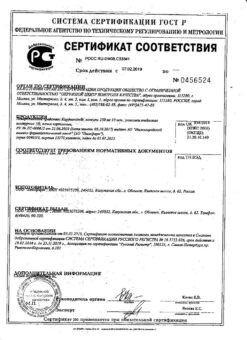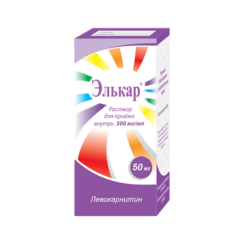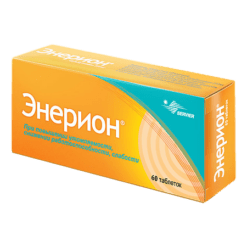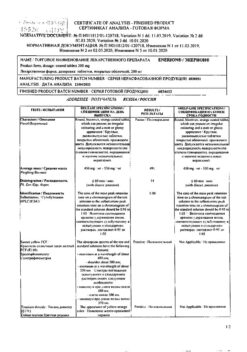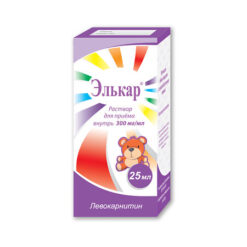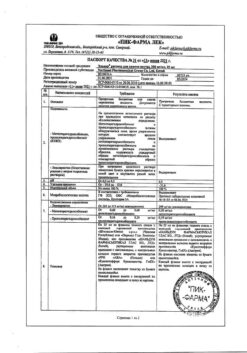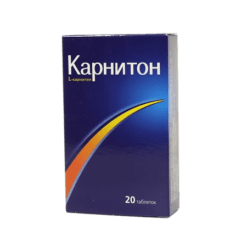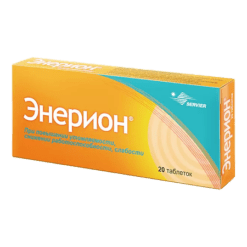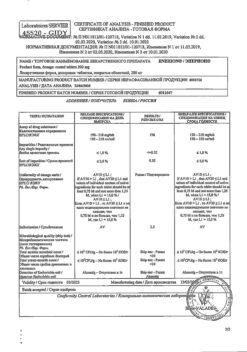No products in the cart.
Teraflex Advance, 250 mg+100 mg+200 mg capsules 120 pcs
€95.81 €79.84
Description
Tereflex Advance is a drug that stimulates the process of regeneration of cartilage tissue, with anti-inflammatory action.
Chondroitin sodium sulfate serves as an additional substrate for the formation of a healthy cartilage matrix.
Stimulates the formation of hyaluronone, the synthesis of proteoglycans and type II collagen and also protects hyaluronone from enzymatic degradation (by inhibiting the activity of hyaluronidase); maintains the viscosity of synovial fluid, stimulates cartilage repair mechanisms and inhibits the activity of those enzymes (elastase, hyaluronidase) that break down cartilage.
In the treatment of osteoarthritis, it relieves the symptoms of the disease and reduces the need for NSAIDs.
Glucosamine sulfate activates the synthesis of proteoglycans, hyaluronic acid, chondroitinic acid and other substances that make up the joint sheaths, intra-articular fluid and cartilage tissue.
Ibuprofen is a derivative of propionic acid and has analgesic, antipyretic and anti-inflammatory effect due to non-selective blockade of COX-1 and COX-2.
Glucosamine sulfate and chondroitin sulfate contained in the drug potentiate the analgesic effect of ibuprofen.
Indications
Indications
Active ingredient
Active ingredient
Composition
Composition
Active substances:
Glucosamine sulfate – 250 mg;
Chondroitin sulfate sodium – 200 mg;
Ibuprofen – 100 mg.
Auxiliary substances:
MCC – 30.78 mg;
Corn starch – 19.69 mg;
Pregelatinized starch – 17.47 mg;
Stearic acid – 11.59 mg;
sodium carboxymethyl starch – 10 mg;
crospovidone – 10 mg;
Magnesium stearate – 3 mg;
Silicon dioxide – 4.05 mg;
povidone – 2.382 mg.
How to take, the dosage
How to take, the dosage
Ingestion with a small amount of water.
Adults: 2 caps. 3 times a day after a meal.
Duration of use without physician’s consultation should not exceed 3 weeks.
The further use of the drug should be coordinated with the physician.
Special Instructions
Special Instructions
During long-term treatment it is necessary to monitor peripheral blood picture and functional state of the liver and kidneys.
In case of symptoms of gastropathy, close monitoring is indicated, including esophagogastroduodenoscopy, blood tests with determination of hemoglobin, hematocrit, stool analysis for occult blood.
If simultaneous use of additional NSAIDs and analgesic agents is necessary, the physician should consider the presence of ibuprofen in the drug. If prolonged use of additional NSAIDs is necessary, the drug Teraflex without ibuprofen should be used.
If it is necessary to determine 17-ketosteroids, the drug should be discontinued 48 hours before the study.
The intake of alcohol is not recommended during treatment.
Influence on ability to drive vehicles and other machinery require increased concentration:
Patients should refrain from activities requiring increased attention, rapid mental and motor reactions.
Synopsis
Synopsis
Contraindications
Contraindications
Side effects
Side effects
When using the drug Teraflex Advance nausea, abdominal pain, flatulence, diarrhea, constipation, allergic reactions are possible. These reactions disappear after discontinuation of the drug.
The possibility of adverse reactions associated with the ibuprofen present in the drug should be considered. When ibuprofen preparations are used in higher doses than those contained in Teraflex Advanc, the following adverse reactions may occur.
Gastrointestinal side: NSAID gastropathy (abdominal pain, nausea, vomiting, heartburn, decreased appetite, diarrhea, flatulence, constipation; rarely – ulceration of gastrointestinal mucosa, which in some cases is complicated by perforation and bleeding); irritation or dryness of oral mucosa, mouth pain, ulceration of the gum mucosa, aphthous stomatitis, pancreatitis.
Hepatobiliary system disorders:hepatitis.
In the respiratory system: shortness of breath, bronchospasm.
Sensory system disorders:hearing disorders (decreased hearing, ringing or tinnitus), visual disorders (toxic optic nerve damage, blurred vision or double vision, scotoma, dry and irritated eyes, conjunctival and eyelid edema of allergic genesis).
CNS and peripheral nervous system disorders: headache, dizziness, insomnia, anxiety, nervousness and irritability, psychomotor agitation, drowsiness, depression, confusion, hallucinations; rarely – aseptic meningitis (more often in patients with autoimmune diseases).
Systemic diseases: heart failure, tachycardia, increased BP.
Relinary system disorders:acute renal failure, allergic nephritis, nephrotic syndrome (edema), polyuria, cystitis.
Allergic reactions: skin rash (usually erythematous or urticaria), skin itching, Quincke’s edema, anaphylactoid reactions, anaphylactoid shock, bronchospasm or dyspnea, fever, erythema multiforme exudative (including Stevens-John’s syndrome).Stevens-Johnson syndrome), toxic epidermal necrolysis (Lyell’s syndrome), eosinophilia, allergic rhinitis.
Hematopoietic organs: anemia (including hemolytic, aplastic), thrombocytopenia and thrombocytopenic purpura, agranulocytosis, leukopenia.
Laboratory findings: bleeding time may increase, serum glucose concentration may decrease, creatinine clearance may decrease; hematocrit or hemoglobin may decrease; serum creatinine concentration may increase; hepatic transaminase activity may increase.
Pregnancy use
Pregnancy use
It is contraindicated in pregnancy and lactation.
Additional information
| Shelf life | 2 years. |
|---|---|
| Conditions of storage | In a dry, light-protected place at a temperature not exceeding 25 °C. |
| Manufacturer | Contract Pharmacal Corporation, USA |
| Medication form | capsules |
| Brand | Contract Pharmacal Corporation |
Other forms…
Related products
Buy Teraflex Advance, 250 mg+100 mg+200 mg capsules 120 pcs with delivery to USA, UK, Europe and over 120 other countries.

